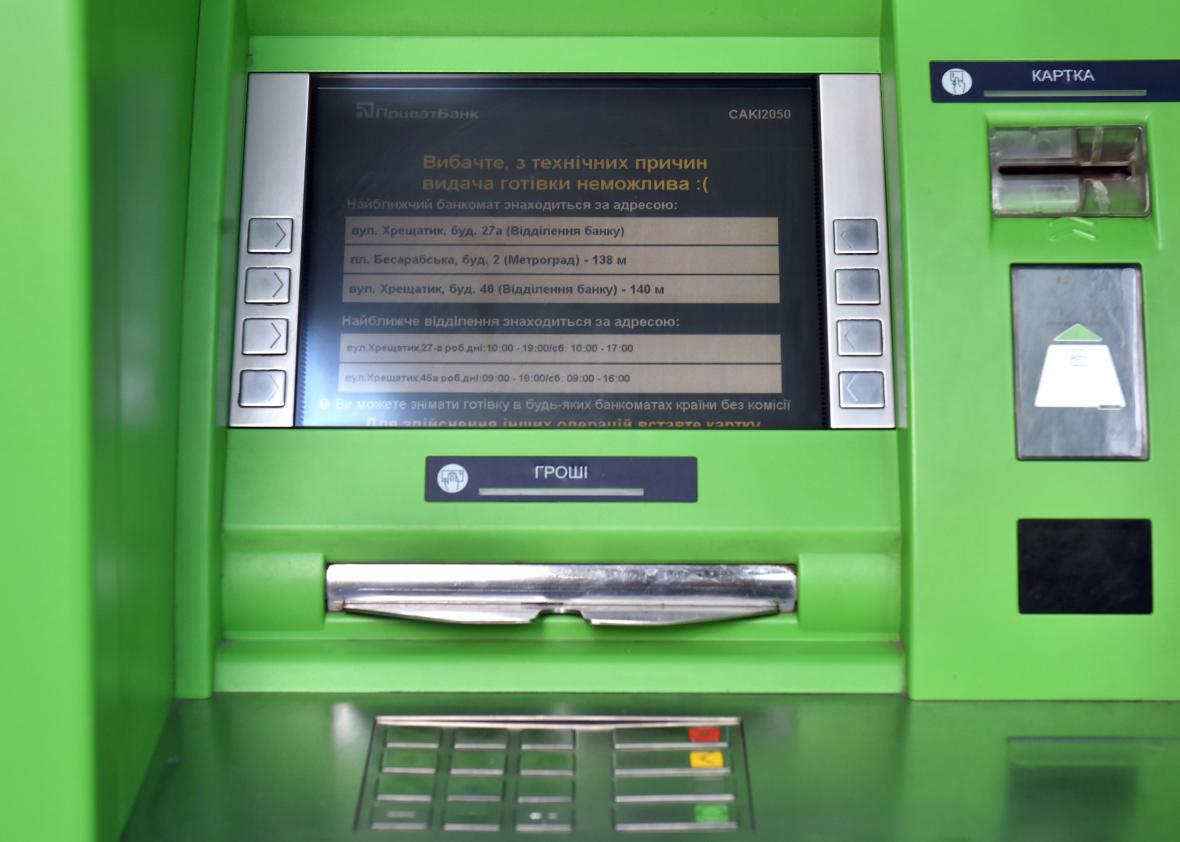Ukraine was the target of two very dramatic attacks on Tuesday. The targets and methods used were very different. But in both cases, while Russian involvement was suspected, the exact culprits will be very hard to identify, much less hold responsible.
In Kiev, a car bombing killed a senior military intelligence official, Maxim Shapoval, in what investigators called a terrorist attack. Shapoval had reportedly been working to collect evidence of Russian involvement in the violence in Eastern Ukraine and is the latest in a string of assassinations or attempted assassinations of enemies of Russia on Ukrainian soil. In March, Denis Voronenkov, a former member of the Russian parliament who had fled to Ukraine after turning against Vladimir Putin’s government, was shot dead in Kiev. That same month, a military intelligence official assigned to the Donetsk region, which is partially under the control of Russian-backed separatists, was killed in a car bombing in the port city of Mariupol. On June 1, a man from Chechnya posing as a reporter for a French newspaper, shot and wounded Adam Osmayev, a Chechen who had gained fame for fighting on behalf of the Ukrainian government.
Unlike in previous cases, the government did not immediately blame Russia for Shapoval’s death, but Ukrainian officials reportedly suspect Russian involvement. In 2006, Russia passed a law permitting the killing of “extremists” on foreign soil.
Also on Tuesday, Ukraine was the epicenter of a massive cyberattack. The ransomware, similar to the “WannaCry” attacks in May, quickly spread to computer systems around the world, but Ukraine was the first and worst hit. ATMs in Kiev were disabled, and services from trains to post offices to the power grid were disrupted. Safety workers at the Chernobyl site were forced to manually monitor radiation at the former nuclear plant after computers failed. Ukraine has repeatedly accused Russia of cyberattacks since the outbreak of hostilities in 2014, including a 2015 power grid hack that left thousands without electricity for hours.
The Kremlin has denied involvement in those attacks and said it had no information about this week’s attack. Spokesman Dmitry Peskov warned against “unfounded blanket accusations.” Several Russian companies, including state-owned energy giant Rosneft, were also targeted by the ransomware, so if the Russian government was involved, it may have accidentally cyberattacked itself in the process.
The violence between Ukrainian government forces and Russian-backed separatists in the eastern Donbass region has killed more than 10,000 people. While the conflict has fallen out of the headlines lately, it has not abated entirely, as there have been frequent violations of the cease-fire agreements. The European Union extended sanctions on Russia on Wednesday, citing a lack of progress on negotiating an end to the conflict.
While devastating for those living near the front lines, the conflict has mostly settled into an uneasy stasis. The mysterious and often unattributable attacks striking the heart of the country, far from the battlefield, could be much more unnerving.
